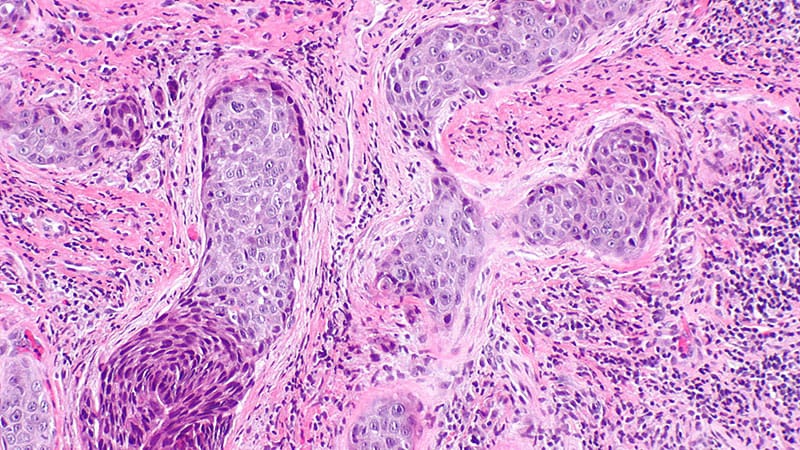The study covered in this summary was published on researchsquare.com as a preprint and has not yet been peer reviewed.
Key Takeaway
-
Patients with laryngeal squamous cell carcinoma (SCC) that was treated with hypofractionated radiotherapy consume significantly higher doses of opioids than patients who received standard-fraction regimens, suggesting these patients experience greater pain.
Why This Matters
-
With fewer fractions but at higher doses, hypofractionation shortens treatment time and, in early glottic cancer, improves survival.
-
However, treatment-related pain is sometimes overlooked.
-
Greater pain with hypofractionated regimens affects quality of life and may prompt patients to discontinue treatment early.
-
The investigators suggest that physicians should anticipate higher levels of pain among patients receiving hypofractionated radiotherapy. In addition, the authors suggest that physicians incorporate both opioids and steroids into treatment, that they educate patients on what to expect, and that they encourage patients to report pain during treatment.
Study Design
-
The team compared opioid use, a surrogate of pain intensity, among 64 patients with early glottic cancer treated with hypofractionation (2.25 Gy/fr, 63 Gy) with opioid use among 63 patients with both early- and advanced-stage laryngeal tumors who received standard fractionation (2 Gy/fr, 70 Gy) to the glottis and bilateral neck, either with or without concurrent chemotherapy.
Key Results
-
Overall, 45% of patients in the hypofractionation group used opioids during treatment, vs 35% of patients who received standard fractions.
-
In addition, 24% of hypofractionation patients used opioids for over a month, vs 14% of standard-fraction patients.
-
The average fentanyl and oxycodone doses were higher in the hypofractionation group: 15.7 mg vs 8.4 mg for fentanyl (P < .002) and 2.9 mg vs 2.1 mg for oxycodone (P < .08).
-
Patients in the hypofractionation group who were treated with dexamethasone boluses demonstrated significantly lower weight loss compared to patients in the hypofractionation group who did not receive steroids. Similar benefits were not seen in the standard-fraction group.
Limitations
-
There was no randomization to control for confounders.
-
Toxicities between the two groups were not compared within same-stage disease.
-
Pain was not assessed directly.
Disclosures
-
There was no external funding for the work, and the investigators disclosed no relevant financial relationships.
This is a summary of a preprint research study, “Higher Toxicity Rates Following Hypofractionated Radiotherapy in Early Glottic Cancer Patients,” led by Ofir Zavdy of Rabin Medical Center, Tel Aviv, Israel, provided to you by Medscape. The study has not been peer reviewed. The full text can be found at researchsquare.com.
M. Alexander Otto is a physician assistant with a master’s degree in medical science and a journalism degree from Newhouse. He is an award-winning medical journalist who has worked for several major news outlets before joining Medscape and also an MIT Knight Science Journalism fellow. Email: aotto@mdedge.com.
For more news, follow Medscape on Facebook, Twitter, Instagram, and YouTube.
Source: Read Full Article



